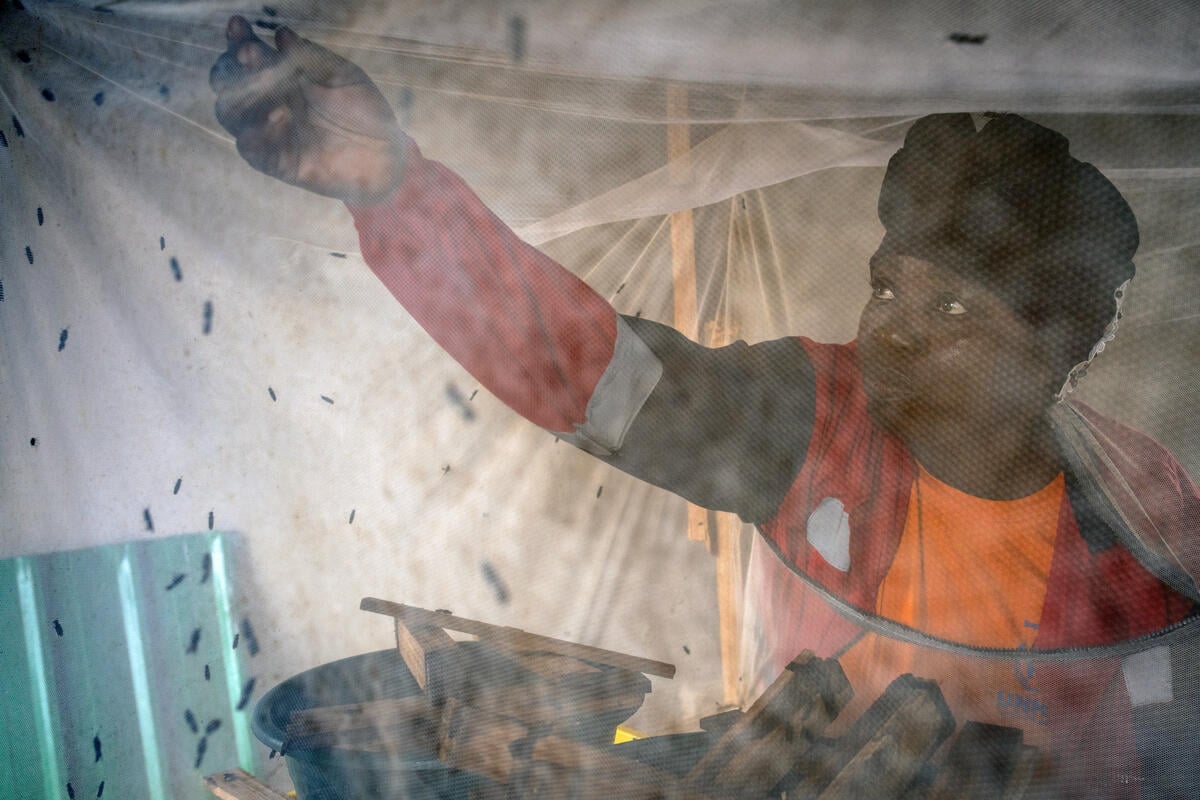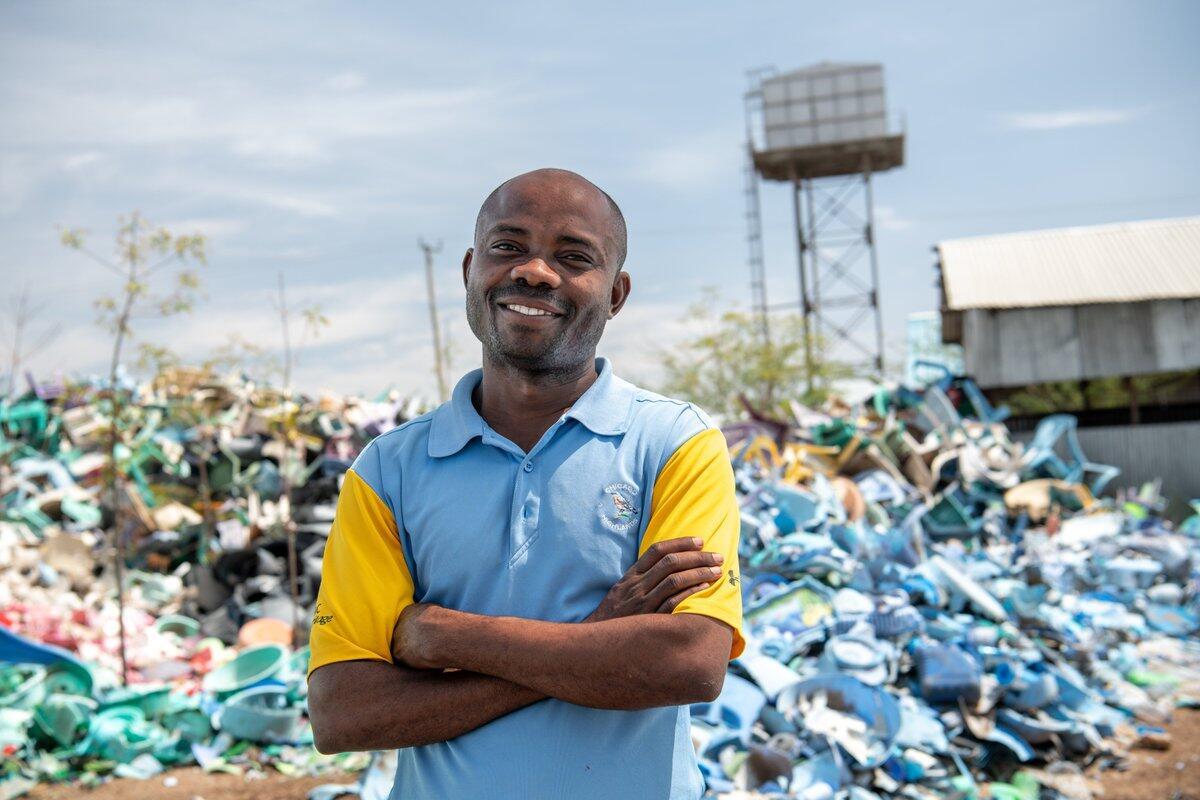DRC: new wave of Angolans arrives
DRC: new wave of Angolans arrives
Fresh fighting in northern Angola has sent a new wave of Angolan refugees into the Democratic Republic of Congo (DRC). The new movement comes barely two months after more than 15,000 refugees fled to the DRC following a UNITA rebel attack on a northern Angola town. In the latest influx, more than 3,000 Angolan refugees have arrived in the DRC town of Kimvula, fleeing more fighting between Angolan government forces and UNITA at Kimbindi, in the north of Angola's Uige Province. Kimvula is 30 km north of Angola's northern border with the DRC.
UNHCR teams at the border town report that nearly 250 refugees are arriving daily in the town, which already had close to 9,000 refugees from an earlier influx in August. The refugees who arrived during August were awaiting transfer to sites away from the border. UNHCR has begun to register this latest group of refugees in preparation for their transfer, along with the earlier groups, to settlement sites allocated by DRC local authorities. We are also negotiating for two additional sites to settle the recent arrivals. Local authorities had earlier allocated three sites for the previous group.
UNHCR site planners have been deployed to the DRC villages, some 60-80 km from the border, and have begun to parcel land for the settlement of the refugees. Refugee families transferred to the area will receive 2-3 hectares of land to enable them to carry out basic subsistence farming. The families will also receive initial food and household supplies. This latest influx brings to close to 200,000 the number of Angolans inside the DRC.
A five-person team from MONUC - the peace-keeping mission in the Democratic Republic of Congo - is scheduled to travel on Wednesday to Gbadolite and Zongo in DRC's north-western Equateur Province and to Bangui in the Central African Republic. Their mission is to begin preparations for the separation of more than 1,000 former CAR soldiers from an estimated 24,000 CAR refugees who have been in Zongo and adjacent areas since May. The refugees, mainly from the CAR capital, Bangui, and surrounding regions, fled across the Oubangui River to the DRC town of Zongo in the aftermath of a failed coup attempt in CAR last May. Many of the refugees in Zongo have been living in public buildings, including schools. Local authorities are anxious that the refugees are moved away from the border areas for security reasons and out of the school buildings, in particular, as soon as possible to enable schools to resume classes.









